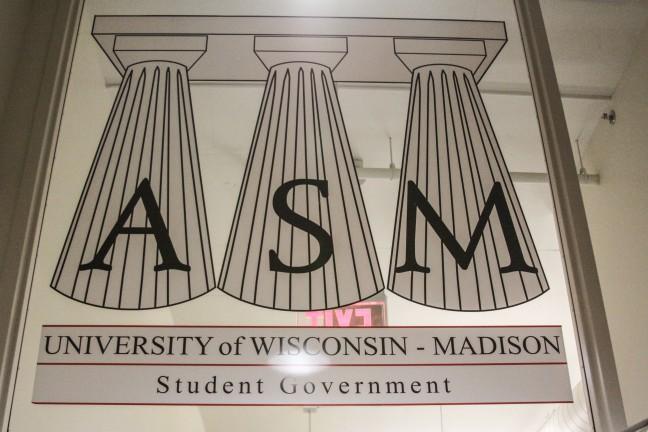As Gov. Scott Walker’s proposed state budget moves through the state Legislature, Associated Students of Madison has one chief concern.
That’s Gov. Scott Walker’s proposal to make segregated fees — which all students pay to support certain campus groups and services — optional.
Gov. Scott Walker unveiled his budget proposal earlier this month. It will soon go to the Joint Finance Committee, which digs deeper and edits it, ASM Legislative Affairs Committee Chair Sally Rohrer said. Joint Finance Committee works on it until May or June, after which it is presented to Walker to sign.
As the finance committee deliberates on the proposal, ASM’s Legislative Affairs Committee lobbies for specific issues it believes will significantly impact students. Student Services Finance Committee member Zaakir Abdul-Wahid said a lot of this lobbying is based on grassroots efforts from within ASM and around campus.
Grassroots efforts involve students taking their concerns to ASM, and ASM then working toward bringing these to administration and legislators. ASM committees also support student campaigns like the Fund Our UW campaign, Abdul-Wahid said.
“Lobbying Days” is another effort that involves students from different UW System schools who go and talk to individual legislators about the importance of funding and the impact it has on student services.
Grassroots organizing in UW relies heavily on how ASM, students and budgetmakers communicate with each other, Abdul-Wahid said. But the communication process between Joint Finance Committee, Walker and ASM is “long” and “monotonous,” he said.
“As much as we can say it and as much as we can protest, it’s so hard for our opinions to actually translate to increased funding,” Abdul-Wahid said. “Our core beliefs are not reflected in what legislators create for us, and that’s the challenge that comes convincing them that we need this.”
The lack of communication in turn impacts how UW lobbies because fewer students are aware of budget process. This lack of campus awareness limits the grassroots organizing ASM can do, Abdul-Wahid said.
Rohrer said there is also a disconnect between administration and student budget priorities. For instance, UW Chancellor Rebecca Blank supports an increase for in-state tuition, which ASM opposes. Rohrer said it is also concerning Blank has not released an official statement on Walker’s proposal to make segregated fees optional.
“We obviously are working on the budget as students and [Blank and UW System] are working on it as administration or Board of Regents,” Rohrer said. “But while we have similar motives, our priorities are fundamentally different.”
Rohrer said ASM’s biggest concern this budgeting cycle is Walker’s segregated fees proposal. Other concerns include making 60 percent of degree programs three years long by 2020 and tying funding for the UW System to performance metrics. She said both these measures could potentially diminish liberal arts education while favoring science, technology, engineering, math and business programs.
Rohrer said false information, like some legislators’ claims that ASM favors liberals despite its status as a neutral organization, makes it difficult to show legislators what UW needs.
ASM spokesperson Jason Klein said ASM is focused on reaching out to individual state legislators, particularly JFC members. ASM also held a lobbying training session that informed people on how they can assist ASM’s efforts.
“It’s really going to be best if this is not an ASM issue, because it isn’t,” Klein said. “It’s a student issue in general. It would be so much better if other student organizations and services that benefit from this money could come together and show legislators that these services are vital to the student body.”
Avery Aurand contributed to reporting this article.


